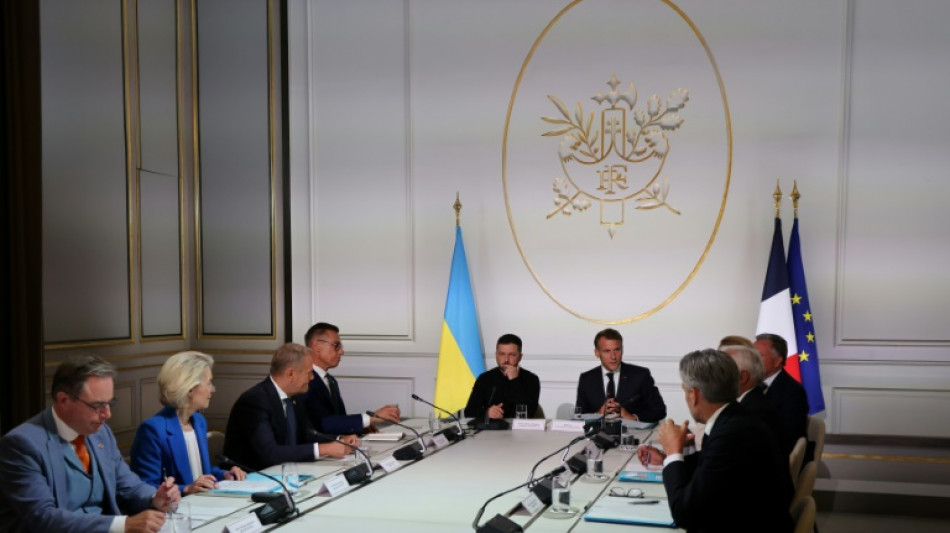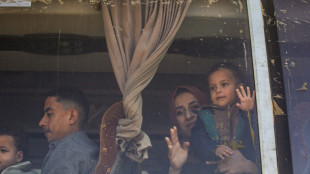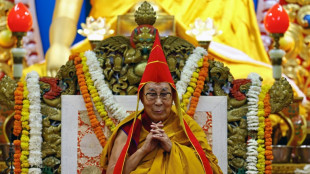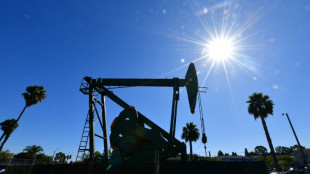

Europe pledges postwar 'reassurance force' for Ukraine: Macron
Over two dozen countries have pledged to take part in a force to be deployed in Ukraine after any peace accord with Russia, aiming to deter Moscow from ever again attacking its neighbour, French President Emmanuel Macron announced on Thursday.
A "reassurance force" for Ukraine is a key pillar of the security guarantees a coalition of mainly European countries want to offer to Ukraine if the war ends via a peace deal or a ceasefire.
However there is also growing concern that Russian President Vladimir Putin is currently showing no interest in a peace accord, with alarm intensifying after his high-profile visit to Beijing this week.
European leaders spoke to US President Donald Trump via video conference after the summit in Paris of the so-called coalition of the willing, hosted by Macron and attended by Ukraine's President Volodymyr Zelensky.
Some European leaders attended in person and others, like UK premier Keir Starmer, remotely.
The meeting is a new push led by Macron to show that Europe can act independently of Washington after Trump upended US foreign policy and launched direct talks with Putin after returning to the White House.
The United States was represented by Trump's special envoy Steve Witkoff, who also met with Zelensky separately.
- 'First concrete step' -
Europe has been under pressure to step up its response over three and a half years after Russia launched its full-scale invasion in February 2022.
"We have today 26 countries who have formally committed -- some others have not yet taken a position -- to deploy as a 'reassurance force' troops in Ukraine, or be present on the ground, in the sea, or in the air," Macron told reporters alongside Zelensky.
Zelensky hailed the move. "I think that today, for the first time in a long time, this is the first such serious concrete step," he said.
Macron added: "This force does not seek to wage any war on Russia. It is a force to guarantee peace."
The troops would not be deployed "on the front line" but aim to "prevent any new major aggression", the French president said.
He added that another major pillar was undertaking a "regeneration" of the Ukrainian army so that it can "not just resist a new attack but dissuade Russia from a new aggression".
Macron said the United States was being "very clear" about its willingness to participate in security guarantees for Ukraine.
During the summit Starmer said it was necessary "to go even further to apply pressure on Putin to secure a cessation of hostilities", a Downing Street spokeswoman said.
German Chancellor Friedrich Merz also urged more pressure but remained cautious about the scope of involvement.
"Germany will decide on military involvement at the appropriate time once the framework conditions have been clarified," a government spokesman said after the summit.
The coalition of the willing includes around 30 nations backing Ukraine, mainly European but also Canada, Australia and Japan.
- 'Governor of Texas' -
Frustration has been building in the West over what leaders say is Putin's unwillingness to strike a deal to end the conflict.
Zelensky says he has not seen "any signs from Russia that they want to end the war".
A Russian rocket attack Thursday on northern Ukraine killed two people from the Danish Refugee Council who were clearing mines in an area previously occupied by Moscow's forces, the local Ukrainian governor said.
The strike hit near the outskirts of the regional capital of Chernigiv, 125 kilometres (80 miles) north of Kyiv.
Macron warned that if Russia continued refusing a peace deal, then "additional sanctions" would be agreed in coordination with the United States.
Before the Paris talks, Russian foreign ministry spokeswoman Maria Zakharova said Moscow would not agree to the deployment of foreign troops in Ukraine "in any format".
"It's not for them to decide," NATO chief Mark Rutte shot back Thursday.
"I think we really have to stop making Putin too powerful," Rutte added. "He's the governor of Texas, not more."
The gathering followed Putin's high-profile trips to China and the United States, where he met with Trump in Alaska last month.
Speaking Wednesday in Beijing, where he attended a massive military parade alongside Chinese President Xi Jinping, Putin hailed his forces' progress in Ukraine, adding that Russian troops were advancing on "all fronts".
fff-vl-cad-as-sjw/as/rlp
O.Karatzas--AN-GR


